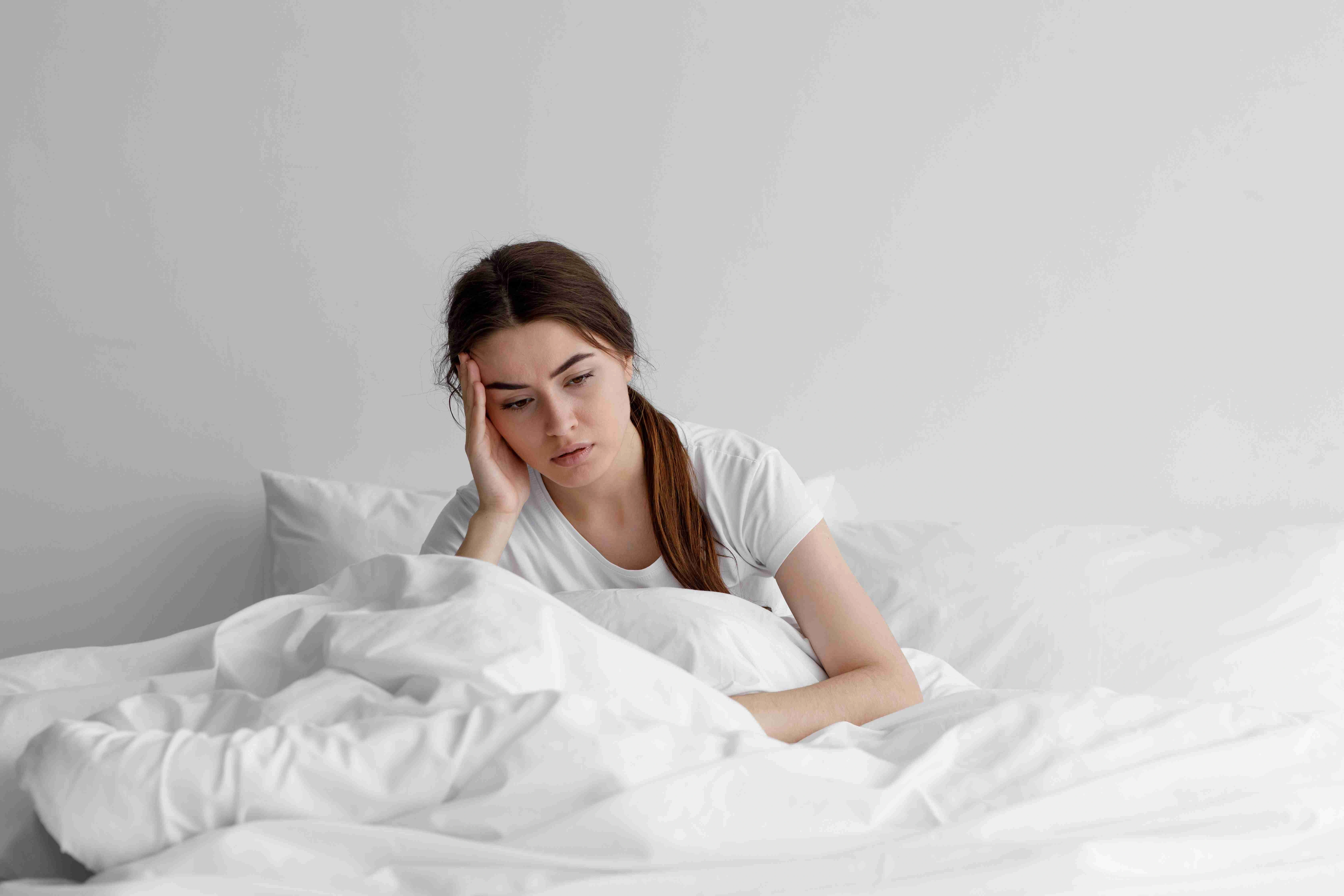In a world increasingly defined by stress and relentless demands, sleep disorders are becoming more prevalent, yet one of the most perplexing conditions is paradoxical insomnia.
Unlike typical insomnia, where individuals struggle to fall or stay asleep, those experiencing paradoxical insomnia believe they are not sleeping at all, despite evidence suggesting otherwise.
In this article, we will delve into the characteristics, underlying causes, and potential treatments for paradoxical insomnia, offering insights into this complex disorder and its impact on overall well-being.
What is Paradoxical Insomnia?
Paradoxical insomnia, also called sleep state misperception, is a sleep disorder where a person believes they are not sleeping well, even though tests show they are getting enough sleep.
People with this condition often feel like they have severe insomnia, even though their sleep quality is better than they think.
How Paradoxical Insomnia Differs from Other Types of Insomnia
Unlike other forms of insomnia, which are typically characterized by difficulty falling asleep, frequent awakenings, or early morning awakenings, paradoxical insomnia is unique in that the primary complaint is not necessarily the inability to sleep but rather the perception of not sleeping well.
This perception can lead to significant distress and impairment in daily functioning, despite the individual's actual sleep duration and quality being within normal ranges.
Causes of Paradoxical Insomnia

Several factors may contribute to the Paradoxical insomnia condition:
Psychological Factors
- Anxiety: Excessive worry about sleep can lead to heightened awareness during sleep periods. The fear of not getting enough sleep can create a self-fulfilling prophecy, where anxiety about sleep actually interferes with the perception of sleep.
- Perfectionism: Individuals with perfectionist tendencies may set unrealistic expectations for their sleep quality and duration. They might perceive any deviation from their ideal sleep pattern as a failure, leading to a misperception of their actual sleep state.
- Hyperarousal: A state of heightened alertness or vigilance, even during sleep. This can result in increased sensitivity to environmental stimuli and a subjective feeling of wakefulness.
- Cognitive Distortions: Negative thought patterns about sleep can skew perception. Catastrophizing can exacerbate sleep misperception.
Biological Factors
- Changes in Neurotransmitter Levels: Imbalances in sleep-regulating neurotransmitters like serotonin, GABA, and melatonin may affect sleep perception. These imbalances can lead to a disconnect between objective sleep measures and subjective experiences.
- Alterations in Brain Regions: Differences in activity or connectivity in sleep-related brain areas (e.g., thalamus, cortex) may contribute to sleep misperception. Neuroimaging has shown altered patterns in regions responsible for sleep-wake transitions in individuals with paradoxical insomnia.
- Distorted Perception of Sleep Quality: The brain's ability to accurately assess time during sleep may be impaired. This can lead to an overestimation of wake time and an underestimation of sleep duration.
Environmental and Lifestyle Factors
- Irregular Sleep Schedules: Inconsistent bedtimes and wake times can disrupt the body's natural circadian rhythm. This disruption may lead to confusion in the brain's sleep-wake signaling, contributing to sleep misperception.
- Exposure to Blue Light: Excessive use of electronic devices emitting blue light before bedtime can suppress melatonin production. This can affect the body's natural sleep-wake cycle and potentially contribute to sleep misperception.
- Poor Sleep Hygiene Practices: Engaging in stimulating activities close to bedtime. Also, try consuming caffeine or alcohol late in the day.
Symptoms of Paradoxical Insomnia

The primary symptom of paradoxical insomnia is the persistent belief that one has not slept well or has experienced significant sleep disturbances, despite objective evidence suggesting otherwise. Other common symptoms may include:
Feeling Sleepless Despite Sleeping
Individuals with paradoxical insomnia often report feeling as if they've been awake for most or all of the night, even when sleep analyses show they've had adequate sleep. This disconnect between perceived and actual sleep can be quite distressing.
Difficulty Concentrating
Despite objectively sufficient sleep, those with paradoxical insomnia may struggle with concentration and cognitive tasks during the day. This symptom likely stems from the belief that they haven't slept well, rather than actual sleep deprivation.
Mood Disturbances
The persistent belief in poor sleep quality can lead to mood changes. People may become agitated, frustrated, or depressed, and the stress of perceived sleeplessness can make these feelings worse.
Anxiety
Anxiety often plays a significant role in paradoxical insomnia. The worry about not getting enough sleep can create a cycle of anxiety that further reinforces the misperception of poor sleep. This anxiety may extend beyond bedtime, affecting overall well-being and quality of life.
Effects of Paradoxical Insomnia
Paradoxical insomnia can have significant psychological and physical impacts, even though the individual may be getting adequate sleep.
Mental Effects of Paradoxical Insomnia
- Difficulty Concentrating: Individuals with paradoxical insomnia often report problems focusing on tasks, despite objectively adequate sleep. This perceived lack of rest can lead to struggles with attention and cognitive performance in daily activities.
- Mood Swings: The persistent belief in poor sleep quality can result in emotional instability. People may experience irritability, frustration, or sudden changes in mood, which can affect their interactions and overall well-being.
- Anxiety and Stress: The discrepancy between perceived and actual sleep can create a cycle of worry and stress. Anxiety about sleep often intensifies as bedtime approaches, potentially exacerbating the misperception of sleeplessness.
- Impaired Memory: Although objective sleep may be sufficient, the belief in sleep deprivation can lead to perceived difficulties with both short-term and long-term memory functions.
- Obsessive Thoughts About Sleep: People with paradoxical insomnia may develop an unhealthy preoccupation with sleep. This can manifest as constant monitoring of sleep patterns, excessive worry about sleep quality, and over analysis of nighttime experiences.
- Social Withdrawal: The cumulative effects of perceived sleep deprivation can lead to reduced social engagement. Individuals may avoid social situations due to fatigue or irritability, impacting relationships and overall quality of life.
Physical Effects of Paradoxical Insomnia
- Fatigue and Low Energy: Despite objective evidence of adequate sleep, individuals may experience persistent feelings of tiredness and lack of energy. This perceived fatigue can affect daily activities and overall productivity.
- Headaches and Muscle Aches: The stress and anxiety associated with paradoxical insomnia can manifest as physical symptoms. Tension headaches and muscle aches, particularly in the neck and shoulders, are common complaints.
- Weakened Immune System: While paradoxical insomnia doesn't result in sleep deprivation, the chronic stress associated with the condition may potentially impact immune function over time. This could lead to increased susceptibility to minor illnesses.
Treatment Options for Paradoxical Insomnia

Paradoxical insomnia, characterized by the perception of not sleeping despite adequate rest, can be challenging to treat, but various approaches can help improve sleep quality and correct sleep misperceptions.
Cognitive Behavioral Therapy (CBT)
CBT-I is often the first-line treatment for paradoxical insomnia. CBT-I aims to address the cognitive and behavioral factors contributing to sleep disturbance by challenging irrational beliefs about sleep, promoting healthy sleep habits, and teaching relaxation techniques.
Medication and Supplements
In some cases, medication or supplements may be prescribed to help manage paradoxical insomnia, particularly if it is accompanied by other sleep disorders or underlying medical conditions.
However, these should be used cautiously and under the guidance of a healthcare professional, as they may not directly address the underlying perception issues associated with paradoxical insomnia.
Biofeedback and Neurofeedback
Biofeedback and neurofeedback are innovative techniques that can be effective in treating paradoxical insomnia.
- Biofeedback: This technique involves using electronic monitoring to provide real-time feedback about physiological processes. For paradoxical insomnia, biofeedback can help individuals recognize the discrepancy between their perceived wakefulness and actual sleep state.
- Neurofeedback: This specialized form of biofeedback focuses on brain activity. It can help individuals with paradoxical insomnia learn to recognize and modify their brain wave patterns associated with sleep and wakefulness. Over time, this can lead to improved sleep perception and reduced anxiety about sleep.
Lifestyle Changes and Sleep Hygiene Practices
Implementing lifestyle changes and adopting good sleep hygiene practices can also be beneficial in managing paradoxical insomnia. These may include:
- Consistent sleep-wake schedule: Maintaining a regular sleep routine, even on weekends, helps regulate the body's internal clock. This consistency can improve overall sleep quality and help align perceived sleep with actual sleep duration.
- Creating a sleep-conducive environment: Ensure the bedroom is dark, quiet, and cool. Use comfortable bedding and pillows. Remove electronic devices that emit blue light or use blue light filters.
- Avoiding stimulants: Limit or avoid caffeine, nicotine, and alcohol, especially in the hours leading up to bedtime. These substances can interfere with sleep quality and exacerbate sleep misperceptions.
- Engaging in regular physical activity: Regular exercise can improve sleep quality and reduce anxiety. However, it's important to avoid vigorous exercise close to bedtime, as it may interfere with falling asleep.
- Practicing relaxation techniques: Techniques such as deep breathing, progressive muscle relaxation, or mindfulness meditation can help reduce sleep anxiety.
FAQs
Is paradoxical insomnia a common condition?
Paradoxical insomnia is relatively uncommon, with estimates suggesting it affects around 5-10% of the general population.
Can paradoxical insomnia be cured?
While paradoxical insomnia cannot be "cured" in the traditional sense, it can be effectively managed through a combination of cognitive behavioral therapy, lifestyle changes, and other coping strategies. With proper treatment and management, individuals with paradoxical insomnia can experience significant improvements in their sleep perception and overall well-being.
Is paradoxical insomnia a lifelong condition?
Paradoxical insomnia is not necessarily a lifelong condition. With appropriate treatment and management strategies, many individuals can overcome or significantly reduce the symptoms of paradoxical insomnia over time.
Can paradoxical insomnia lead to other health problems?
While paradoxical insomnia itself may not directly cause other health problems, the perception of not sleeping well and the associated stress and anxiety can contribute to various physical and mental health issues, such as fatigue, mood disturbances, and impaired cognitive function.
Is paradoxical insomnia more common in certain age groups or populations?
Paradoxical insomnia can occur in individuals of any age, although it may be more prevalent in certain populations, such as those with anxiety disorders, perfectionist tendencies, or a history of sleep disturbances.
Conclusion
Paradoxical insomnia remains an enigmatic sleep disorder, highlighting the complex relationship between our experiences and reality. Sleep is far more than just a physiological process—it's deeply intertwined with our perceptions, beliefs, and mental states. For those suffering from paradoxical insomnia, understanding it and going through with the treatment will offer hope for aligning perceived sleep with actual rest.
Karen Barnard
Karen is a Human Movement Science expert and a certified sports nutrition and massage therapist. At Sleepiverse, she combines her passion for human movement science and sleep health to educate herself and her readers about healthier sleep. In addition to writing articles, Karen manages a fitness studio offering private training, athletic conditioning, and sports massage therapy. She focuses on providing people with a holistic environment for people to reach their health goals, often incorporating stretch therapy to promote mental tranquillity and help people improve their sleep.


